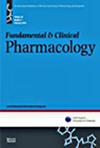JAK/STAT inhibitors mitigate sepsis-associated cerebral and cognitive injury
Abstract
Background
Sepsis is a life threatening condition which triggers multiple organ failure. Sepsis-associated encephalopathy (SAE) is more prevalent form of sepsis which involves acute and long-term cerebral impairment. JAK/STAT pathway is one of the most crucial signaling cascades which promote neuroinflammation.
Objectives
The present investigation was designed to explore the possible role of JAK/STAT inhibitors in sepsis-induced cerebral injury and cognitive impairment in mice.
Methods
Swiss Albino mice underwent cecal ligation and puncture (CLP) to induce sepsis-associated cognitive deficits. Tofacitinib and baricitinib were administered orally one hour before CLP, followed by six days post-CLP administration. From days 7-12, behavioral changes were assessed through various tests, including open field (locomotor activity and non-associative memory), inhibitory avoidance (aversive memory), novel object recognition (recognition memory), and Morris-Water maze tests (spatial learning and memory). Neuronal injury (S-100 calcium-binding protein B, S100B and neuronal specific enolase, NSE) and inflammation (TNF-α) were assessed in the serum. Further, oxidative changes in the mouse brain were evaluated by measuring malondialdehyde and reduced glutathione levels.
Results
JAK/STAT inhibitors, including tofacitinib (7.5 and 15 mg/kgper os) and baricitinib (5 and 10 mg/kgper os), significantly ameliorated sepsis-induced deficits in non-associative, aversive, recognition and spatial memory in mice. Further, tofacitinib and baricitinib treatment decreased TNF-α, Malondialdehyde, S-100B and NSE in mice with sepsis while increasing the levels of reduced glutathione.
Conclusion
JAK/STAT inhibitors significantly decreased neuroinflammation, oxidative stress, and neuronal damage while enhancing cognitive function.

 求助内容:
求助内容: 应助结果提醒方式:
应助结果提醒方式:


